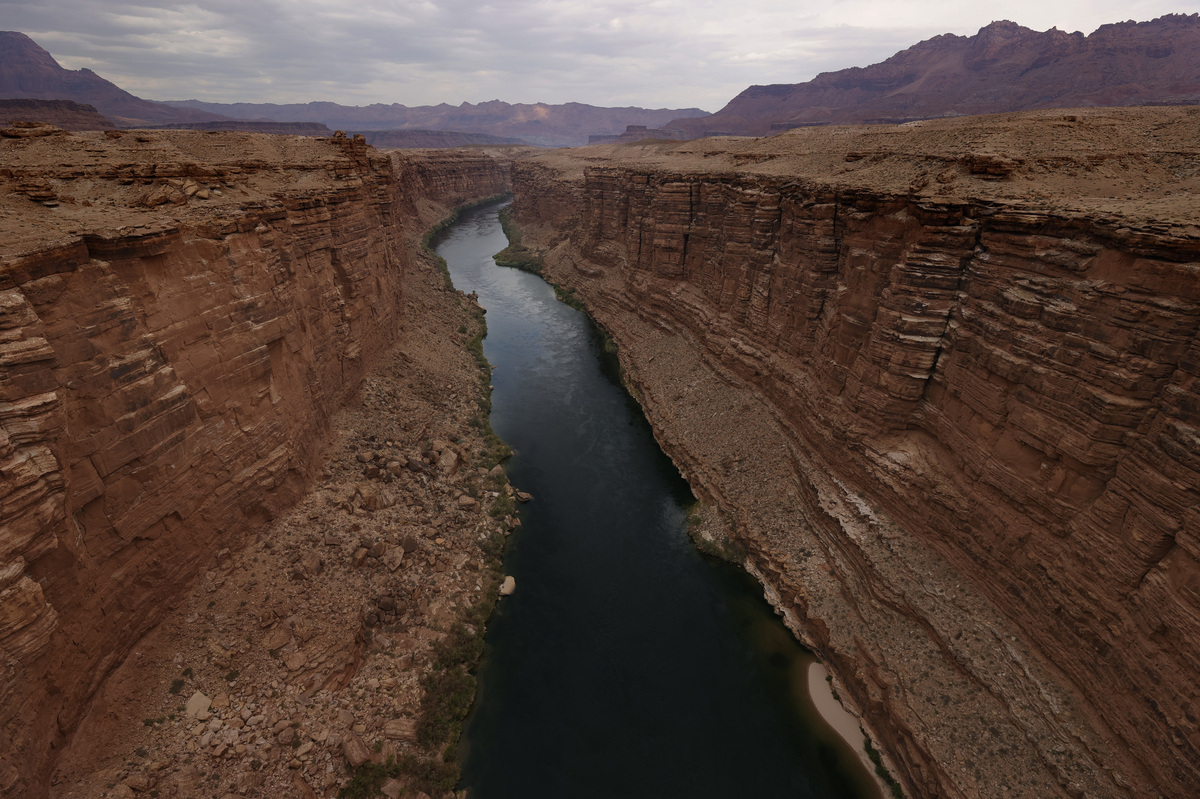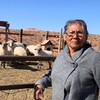[ad_1]
The Colorado River flows by the historic Navajo Bridge in Marble Canyon, Arizona on June 23, 2021.
Justin Sullivan/Getty Images
hide caption
toggle caption
Justin Sullivan/Getty Images

The Colorado River flows by the historic Navajo Bridge in Marble Canyon, Arizona on June 23, 2021.
Justin Sullivan/Getty Images
On Monday, the U.S. Supreme Court heard discussion of a lawsuit that could change the already bitter battle for water rights in the arid American Southwest.
For more than 20 years, the Navajo have fought for access to water from the Lower Colorado River, which flows directly along the reservation’s northwest boundary.
T.Nearly a third of the 170,000 people living on the 27,000-square-mile Navajo reservation in Arizona, Utah and New Mexico lack access to clean, reliable drinking water, the tribe says.

Thousands of people without running water drive miles to refill barrels and jugs to bring water to their homes to drink, cook, bathe and clean. Have to. Some rely on unregulated wells.
However, the issue of access to the Colorado River is highly controversial.
Decades of drought exacerbated by climate change have left the American Southwest at its driest state in centuries. Water supplies in the region are declining as population and agricultural production surge.
The river, which supplies water to 40 million people across the Southwest, is already overused. Her seven river-dependent states have long been embroiled in lawsuits over water bodies. Recently, they have struggled to come to an agreement on how to reduce their water use.

However, the Navajo Nation says it has failed to fully represent its national interests in disputes over water. Instead, they claim to represent tribal interests in water disputes. It states that it was blocked in court by the U.S. federal government.
According to Heather Tanana, a law professor at the University of Utah, the tribe’s claims stem from federal policies that forced the tribe and its citizens to relocate to reservations in the West, including the Navajo Treaty of 1868. ing.
“When they established these reservations, it came with the promise that those lands would become permanent homes for the tribes and their people,” said Tanana, a citizen of the Navajo Nation. “And I think everyone would agree that you can’t have a home of any kind without water.”
The tribes and the U.S. government agree that Indian reservations, including the Navajo, have the right to drink water.

Now the Supreme Court must decide how far the federal government reserves its rights.
“Is the federal government the trustee and the Navajo the beneficiary so that the usual principles of trust law can be applied?” says so. He explained that usually, the beneficiary can sue the trustee for mismanaging the trust (water in this case).
Sympathy for the tribal position came from Justice Neil Gorsuch, a frequent advocate for the rights of indigenous peoples.
“If it turns out to be the Sahara Desert, can I have a valid claim for breach of contract against someone who promised me the right to a permanent home, to farm and to keep animals? ?” Gorsuch asked in oral arguments on Monday. (No, the government lawyer replied.)

The United States argues that a ruling in favor of the Navajo could force the federal government to assess the tribe’s water needs and build water supply infrastructure. Those responsibilities belong to the tribes, the government says.
“Just as the 1868 treaty did not obligate the United States to build roads and bridges, harvest timber, or mine coal, so the 1868 treaty obliged the United States to build pipelines and pumps. or wells to deliver water,” Frederick Liu, assistant attorney general, told the court.
Some of the court’s conservatives, including Justices Samuel Alito and Brett Kavanaugh, appeared sensitive to that concern at Monday’s hearing, and Shay, an attorney arguing on behalf of the Navajo Nation, said:・Prompted for assurance from Dvoretsky.
“The government assumes a parade of horrific events in which the government will have to build pipelines across miles and miles of territory,” Dvoretsky said. I am not talking.”

States such as Arizona, California, and Nevada, which depend on the Colorado River, also opposed the efforts of the tribes, saying diverting water to reservations would cost the state’s population and economy. There is
Favorable rulings won’t immediately solve tribes’ water access problems, experts said. However, this would allow the tribe’s legal efforts around the Colorado River and other waterways to move forward.
“We don’t have enough water. But that doesn’t mean the Navajo don’t have a valid right to be enforced. You should have the ability to play in the watershed,” said Tanana of the University of Utah.
[ad_2]
Source link


